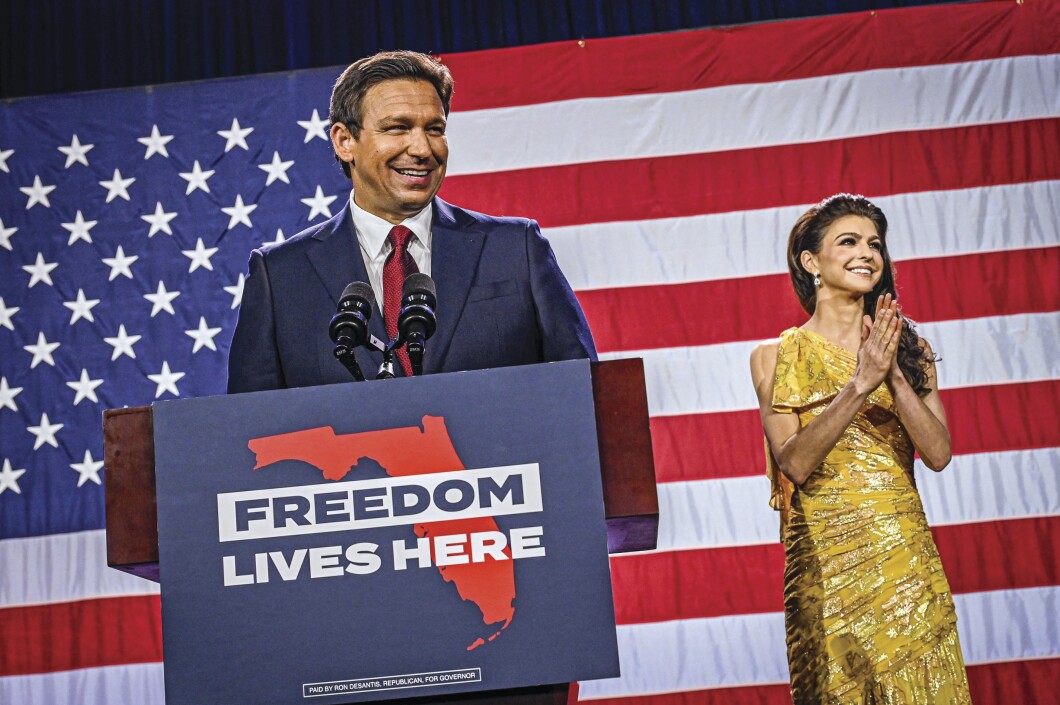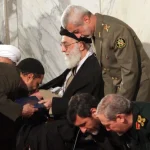
Former U.S. Ambassador to the United Nations Nikki Haley scooped her own presidential announcement. The day before national reporters were set to trek to Charleston, South Carolina, to watch her become former President Donald Trump’s first declared major rival for the 2024 Republican nomination, she sent out a video ending whatever suspense remained.
Haley’s presidential ambitions were among the worst-kept secrets in Washington. Most media outlets reported that she was going to announce a White House bid on Feb. 15, two weeks in advance. Her travel schedule more or less confirmed it, with stops in Iowa and New Hampshire.
That’s what it takes for a candidate to gain control of his or her own campaign narrative in 2023. The media assume a permanent campaign and presume probable candidates are running or not before they have gone through the formality of announcing their intentions.
FIVE SHOTS NIKKI HALEY TOOK AT BIDEN THAT ALSO HIT TRUMP
This took a sad turn in the case of Sen. Dianne Feinstein (D-CA). A major figure in her party for decades and a senator for 30 years, multiple Democrats entered the race before she said she was retiring. Rep. Adam Schiff (D-CA) implied he had Feinstein’s blessing. It was simply assumed based on her sparse fundraising and age — she will turn 90 in June — that she was not running.

When Feinstein finally announced her retirement, a reporter asked her about it. She initially denied having made a decision. She was completely unaware her office had sent out the statement. President Joe Biden helped usher her off the stage with a statement of his own later that same day, saying that Feinstein and her late husband were “dear friends” from his time in the Senate.
The 2024 Republican presidential contest is especially susceptible to this dynamic. Trump announced early, but everyone knew he was running. He had been bursting at the seams to launch a third presidential campaign at the height of the midterm elections and practically had to be restrained from doing so at a rally for J.D. Vance, now a freshman Republican senator from Ohio.
Then there is the other GOP elephant in the room, Gov. Ron DeSantis (R-FL). He is nearly universally regarded as a candidate for the nomination without having said so. He is the front-runner in a number of polls and the only name who has been consistently competitive with Trump.
This negates much of the advantage of declaring early, as lower-polling candidates traditionally must do. George H.W. Bush told reporters in 1979 that he was already on the campaign trail for the following year’s primaries because, as an “asterisk candidate” polling below 1%, he had no hope of winning. Bush parlayed a better-than-expected performance, including a win in the Iowa caucuses, into a running mate slot under Ronald Reagan.
Some political analysts believe that this outcome is the best most Republican candidates who are neither DeSantis nor Trump can hope for in 2024. Every candidate besides Trump and DeSantis is stuck in the single digits in most polls, with Reuters-Ipsos showing former Vice President Mike Pence in a distant third place at 7%.
“Good luck raising money,” said a veteran Republican operative in Washington, D.C. “Everyone is waiting on DeSantis. They will park their money to see what he’s going to do.”
DeSantis now has to govern a large and important state against the backdrop of near certainty he is going to run for president. His every action and utterance will be interpreted through the prism of a national campaign that could be months away, if it ever happens.
For Haley, who chose to strike first, it means that she has to contend with an environment in which she cannot raise money from donors who are waiting on DeSantis’s decision before opening their wallets even though he is unlikely to declare for months — the Florida legislative session is scheduled to expire in May — while paying the costs of a campaign the whole time.
“She gets huge props for inserting herself into the conversation,” Republican strategist John Feehery said. “She is the check-the-box candidate in a party that doesn’t like to check many boxes.”
This leaves Pence, former Secretary of State Mike Pompeo, Sen. Tim Scott (R-SC), and others who are behaving like candidates, with frequent media interviews and stops in the early primary states, in a state of limbo. Pence has teased a candidacy whenever he is asked about supporting Trump again in 2024, saying, “I think we’ll have better choices in the future.” Pompeo is on a book tour, while Scott has launched a “listening tour.” Pompeo and former national security adviser John Bolton, another 2024 possibility, have already joined Trump in panning Haley.
The uncertainty hanging over the Republican race makes this more than an exercise in futility, at least initially. Trump, who faces myriad legal problems and is under investigation by a Justice Department-appointed special counsel, could be indicted. DeSantis could still choose not to run, deciding that at 44 he still has time and the option to run in a cycle in which he won’t have Trump driving up his negatives for a year and a half.
If one or both of the top two contenders is taken off the board, Haley and company could look prescient. They would at least have more obvious paths to the nomination than appear to exist right now. It is also possible that if DeSantis took a pass but Trump did not, that some other candidate could emerge as the anti-Trump alternative and make up a lot of ground in the polls.
CLICK HERE TO READ MORE IN THE WASHINGTON EXAMINER
But at the moment, most of the attention is going to a candidate who isn’t even in the race yet or the one who has been running for president for nearly seven years. Non-Trump candidates are going to face enormous pressure to prove their viability early on, lest a crowded field allow the former president to win with plurality support.
The permanent campaign in the press has overtaken the real thing on the trail.
W. James Antle III is the Washington Examiner’s politics editor.







